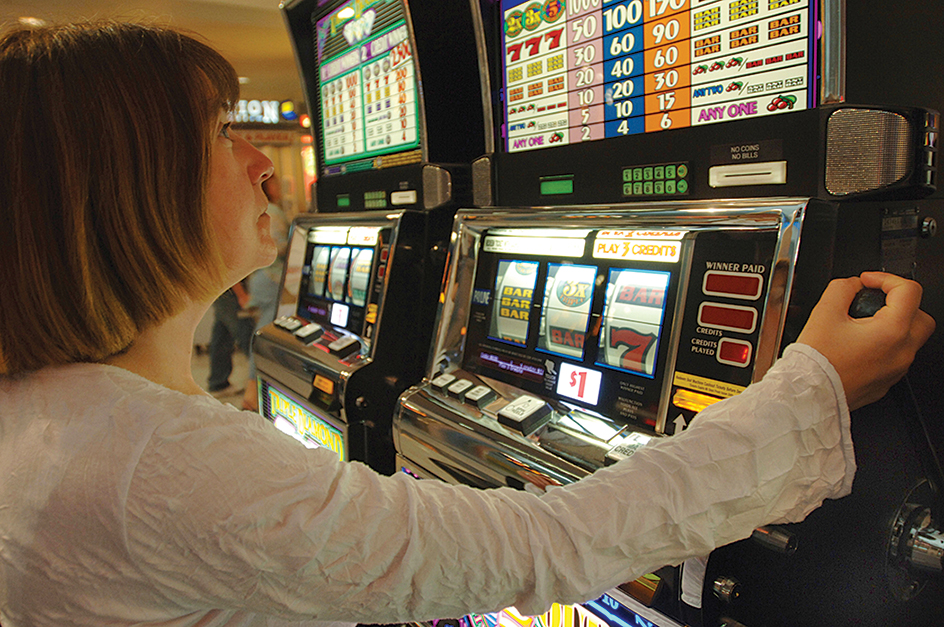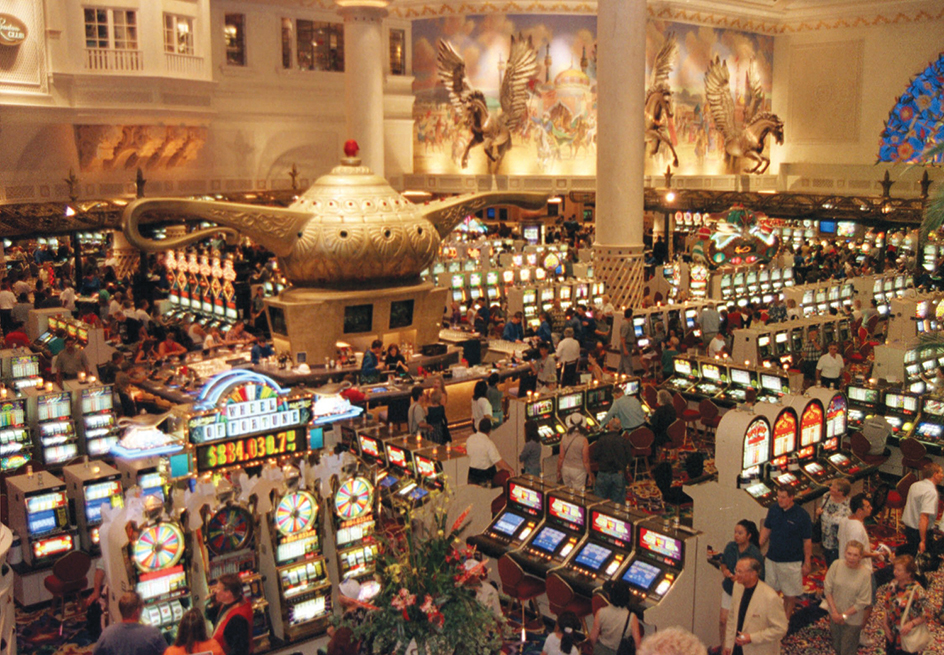Slot machine is a popular gambling device that operates after a player inserts coins, bills, or a credit card into a slot. The player then pulls a handle or pushes a button, causing symbols or images to appear in a window on the machine. Players win money or credits if certain combinations appear in the window. There are millions of slot machines throughout the world. Most of the machines are in gambling casinos.

The main attraction of slot machines is their promise of a large reward for a comparatively small investment, which can range from pennies to more than $1,000 for a single play. The largest, and rarest, reward is called a jackpot. Winning or losing is largely a matter of chance, and an individual needs little skill or knowledge to play. Each machine has built-in odds that favor the casino or machine owner. Many slot machines have such symbols as fruit, the number 7, jewels, or bars. Others might use themes based on television programs, board games, comic books, and other elements of popular culture.
The invention of the three-reel automatic-pay slot machine has been generally credited to Charles A. Fey, a German-born mechanic in San Francisco, about 1899. In 1964, Bally Manufacturing Company introduced “Money Honey,” a partly electronic device with lights, sounds, multiple coin betting choices, and an increased capacity hopper to hold the coins. In the late 1970’s, Inge Telnaes, a Norwegian computer programmer working with Bally, invented the virtual reel system. The invention made slot machines totally electronic, revolutionizing the industry. The new machines offered almost unlimited combinations of symbols to allow huge jackpots, thus attracting a much broader range of players.

See Gambling.
